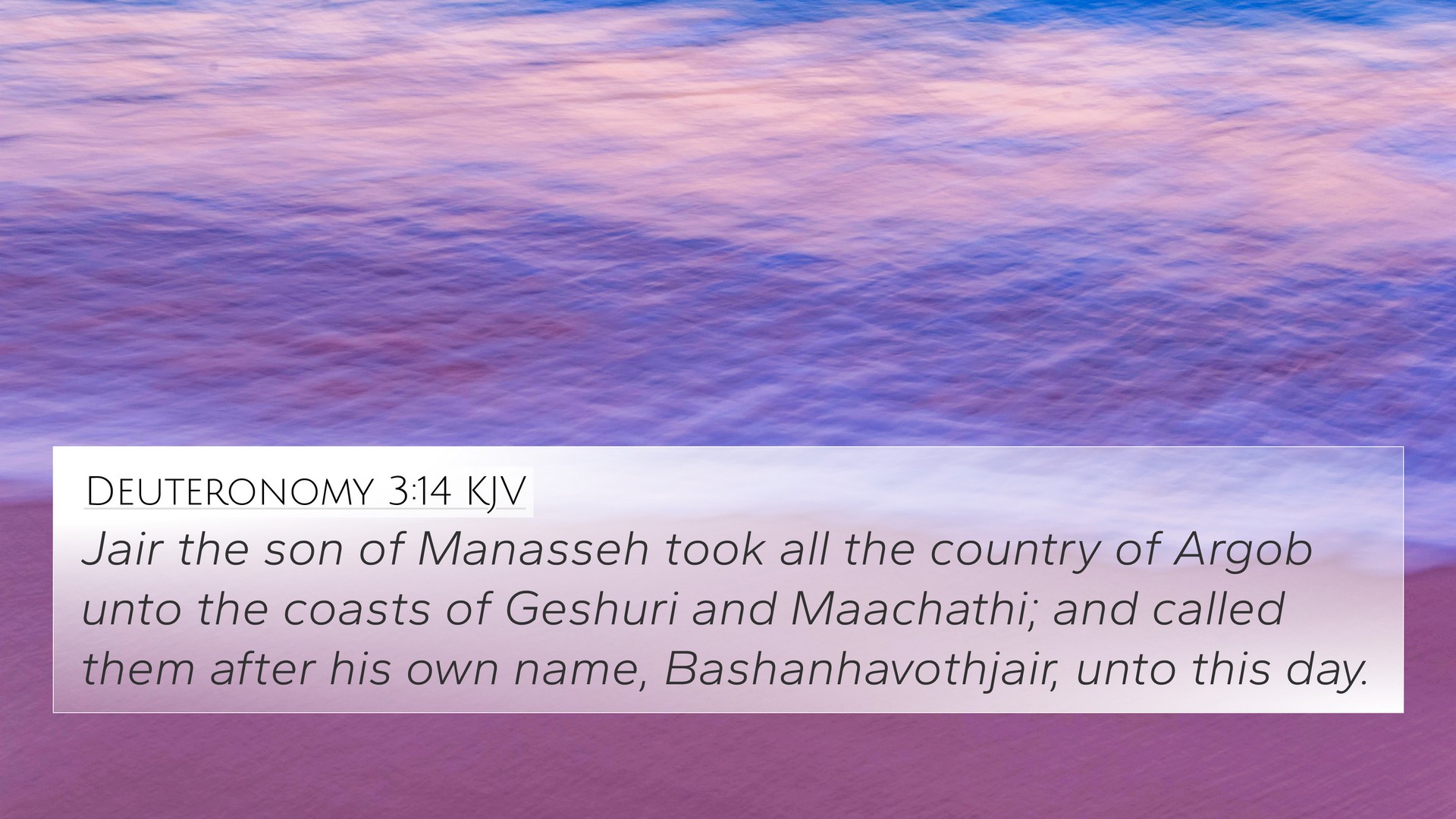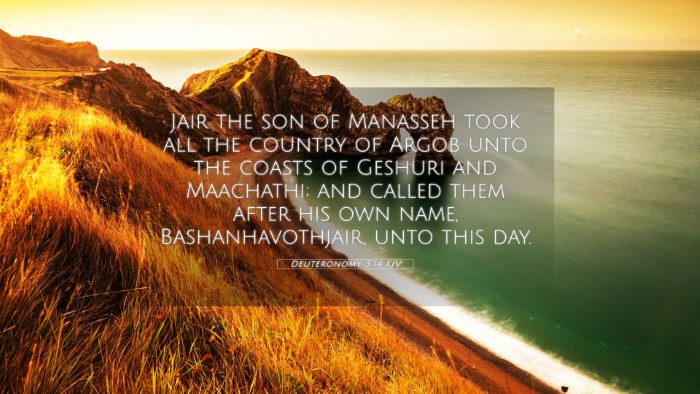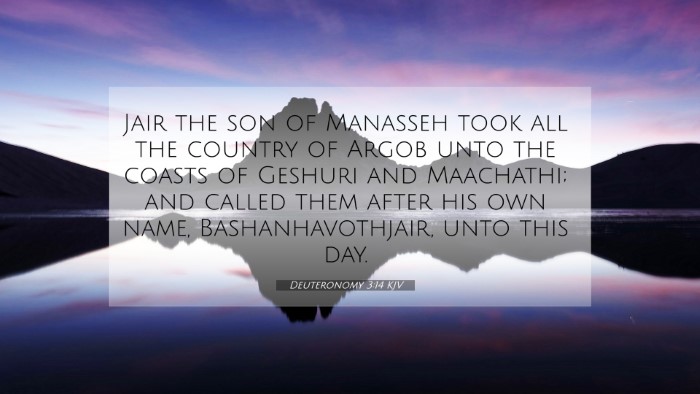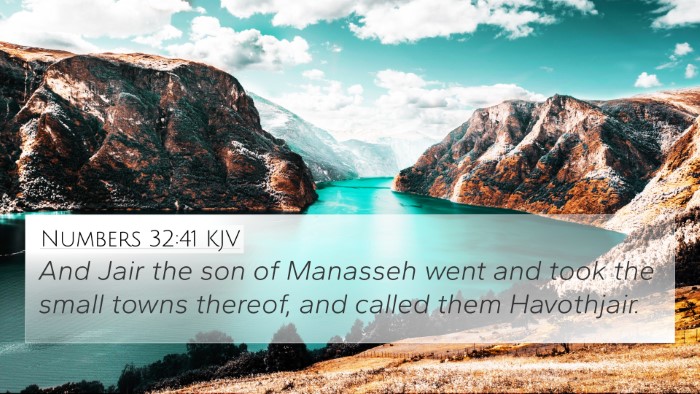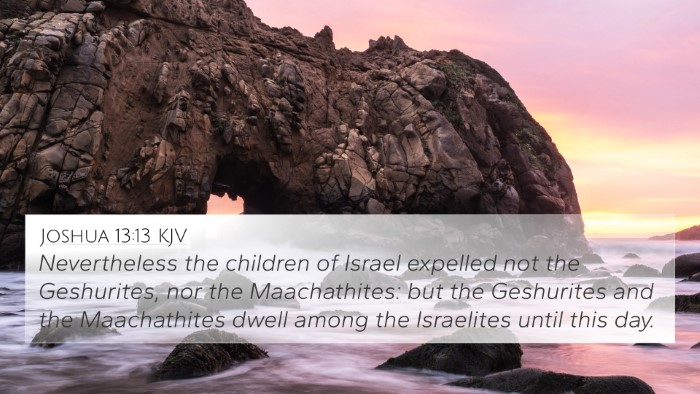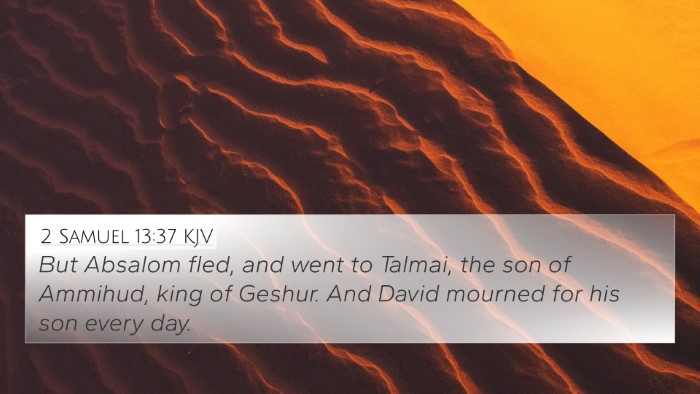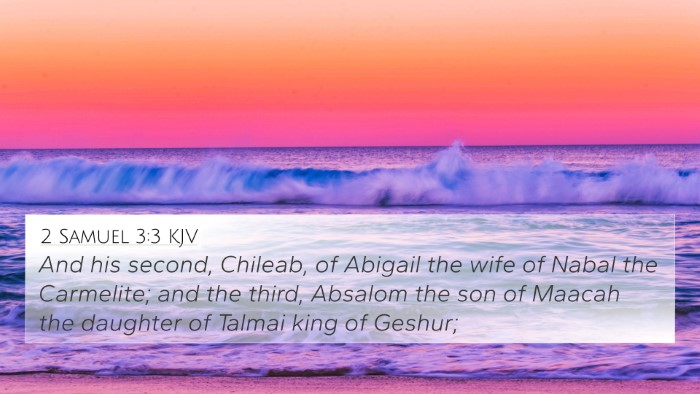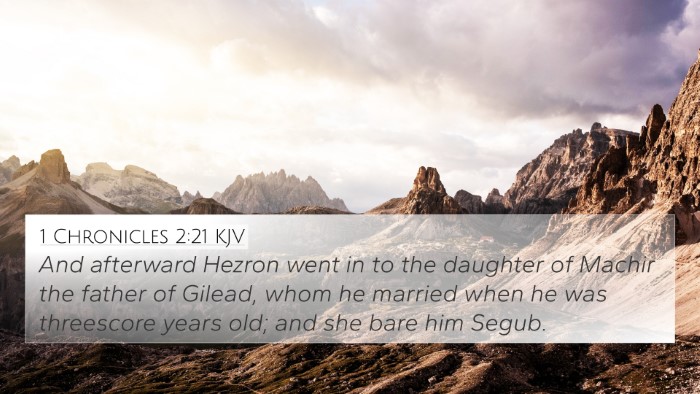Understanding Deuteronomy 3:14
Deuteronomy 3:14 states: "Jair, the son of Manasseh, took all the region of Argob, which is in Bashan, and called the villages, which are named after his own name, Havoth-jair, to this day." This verse provides important historical and theological insights into the conquest of the Promised Land and the establishment of tribes within it.
Historical Context
This verse reflects the period when the Israelites were transitioning from wilderness wanderings to the occupation of Canaan. Jair, a member of the tribe of Manasseh, played a significant role in claiming territories under the leadership of Moses. His actions exemplify the theme of inheritance, a recurrent motif in the Pentateuch.
Thematic Analysis
The naming of the villages as "Havoth-jair" serves multiple purposes:
- Personal Legacy: It emphasizes Jair's impact and legacy in the region.
- Divine Promise: The act of naming reflects the fulfillment of God's promises to the tribes of Israel regarding land inheritance.
- Cultural Identity: This practice reinforces a sense of belonging and identity among the people of Manasseh.
Cross-References
Deuteronomy 3:14 connects with several other scripture passages that enrich its meaning:
- Numbers 32:41: Jair is mentioned as having taken control of cities in Gilead, showcasing his military leadership.
- Joshua 13:30: This verse details the allocation of land among the tribes of Israel, confirming Jair's role in possessing Bashan.
- 1 Chronicles 2:22: It lists Jair’s descendants, highlighting the continuity of his lineage and legacy.
- Deuteronomy 1:1: The backdrop of Moses’ speeches provides insight into the covenant relationship between God and Israel.
- Psalm 135:11: References Bashan, linking Jair's conquest to God’s overarching plan for Israel.
- Mark 5:1: The story of Jesus healing the Gerasene demoniac ties back to the region of Gad, part of the territory claimed by Jair.
- Hebrews 11:32-34: Highlights the faith of those who conquered kingdoms, relating to Jair’s achievements in faith.
Interpretation from Commentaries
The insights from public domain commentaries provide a deeper understanding of this verse:
- Matthew Henry: Emphasizes that Jair's actions demonstrate the importance of faithful stewardship over God-given resources.
- Albert Barnes: Notes that Jair’s taking of cities symbolizes the rewards of courage and faithfulness in obeying God’s commands.
- Adam Clarke: Indicates the cultural significance of naming places, which helps to preserve history and heritage within the community.
Practical Applications
The lessons from Deuteronomy 3:14 remain relevant today:
- Legacy Building: Just as Jair built a legacy, Christians are encouraged to create a godly legacy through their actions and faith.
- Faith in Action: Jair's military accomplishments remind believers of the importance of taking action in faith.
- Honor Heritage: The act of naming signifies the importance of acknowledging and honoring one’s heritage and spiritual roots.
Conclusion
Deuteronomy 3:14 serves as an important reminder of the significance of legacy, faith, and community in the life of the believer. By exploring cross-references, the connections between this verse and others become evident, enriching our understanding of biblical themes.
Further Exploration
For those interested in a deeper study, consider using various tools for Bible cross-referencing such as a Bible concordance or a cross-reference Bible study guide. These resources assist in identifying connections between Old and New Testament, providing a comprehensive view of the scriptures.
